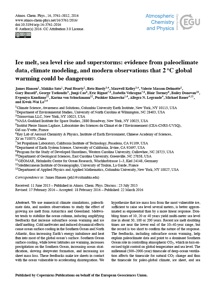Published online at Louisville, Kentucky USA -
An independent, secular, contemporary journal of political and environmental issues dedicated to peaceful reduction of human impacts on Earth
Member Planet Love Cooperative © 2016
Published online at Louisville, Kentucky USA -
An independent, secular, contemporary journal of political and environmental issues dedicated to peaceful reduction of human impacts on Earth
Member Planet Love Cooperative © 2016
BadwaterJournal.com
WHAT UNSUSTAINABLE URBAN GROWTH LOOKS LIKE


METRO POLICY AND CLIMATE CATASTROPHE
by Bud Hixson
Environ Sci Technol. 2016 May 3;50(9):4722-30. doi: 10.1021/acs.est.5b06162. Epub 2016 Apr 22.
Trends in Global Greenhouse Gas Emissions from 1990 to 2010.
Abstract
Anthropogenic carbon dioxide emissions are known to alter hydrological cycles, disrupt marine ecosystems and species lifecycles, and cause global habitat loss. In this study, we use a comprehensive global input-output database to assess the driving forces underlying the change in global CO2 emissions from 1990 to 2010.
We decompose the change in emissions for the 20 year period into six mutually exclusive causal determinants. Our assessment of trends in fuel-use reveals that a 10.8 Peta-gram (Pg) rise in emissions from 1990 to 2010 constitutes emissions from the consumption of coal (49%), petroleum (25%), natural gas (17%), and biomass (9%).
We demonstrate that affluence (per-capita consumption) and population growth are outpacing any improvements in carbon efficiency in driving up emissions worldwide.
Our results suggest that supply chain measures to improve technological efficiency are not sufficient to reduce emissions.
To achieve significant emission savings, policy makers need to address the issue of affluence. We argue that policies to address unsustainable lifestyles and consumer behavior are largely unheard of, and governments may need to actively intervene in nonsustainable lifestyles to achieve emission reductions. The results presented in this paper are vital for informing future policy decisions for mitigating climate change.
Zona et al,
Cold season emissions dominate the Arctic tundra methane budget, Proc Natl Acad Sci U S A. 2016 Jan 5; 113(1): 40–45.
“Emissions of methane (CH4) from Arctic terrestrial ecosystems could increase dramatically in response to climate change (1–3), a potentially significant positive feedback on climate warming. High latitudes have warmed at a rate almost two times faster than the Northern Hemisphere mean over the past century, with the most intense warming in the colder seasons (4) [up to 4 °C in winter in 30 y (5)].”
Continued warming and deeper snow are forecast for the future in the Arctic (33). Our results indicate these changes will result in globally significant increases in CH4 emissions and that cold-season emissions will become increasingly important in this process.”
Social scientists and even U.S. senators are signaling that our political institutions are compromised and cannot pass legislation that will avoid catastrophic global warming. The government is moving too slowly, and legislators like Rhode Island Senator Sheldon Whitehouse are in the minority as he protests against an organized fossil fuel energy coalition that is thwarting legislation to protect the planet:
Washington, D.C. July 15, 2016– "Throughout the week on the Senate floor, Senate Democrats called out various trade associations, foundations, and organizations for perpetrating a sprawling web of misdirection and disinformation to block action on climate change. The Senators’ remarks detailed the concerted campaign waged by the Koch brothers, major fossil fuel companies, identity-scrubbing groups like Donors Trust and Donors Capital, and their allies to manipulate the public’s perception of the climate crisis and curtail legislative action to address it."
Website Rhode Island Senator Sheldon Whitehouse. http://www.whitehouse.senate.gov/news/release/senators-call-out-web-of-denial-blocking-action-on-climate-change
It is an established scientific consensus, that the global community must drastically reduce carbon emissions between 2016 and 2030 to avoid exceeding a 2°C average surface temperature increase over preindustrial levels.
"CO2, must be reduced to no more than 350 ppm to restore planetary energy balance (Hansen et al., 2008) and keep climate near the Holocene level, Fossil fuel CO2 emissions should be reduced as rapidly as practical."
Current monthly average ambient concentrations of CO2 are measured at 406.81 ppm at the Mona Loa observatory in Hawaii.
Against the likelihood of achieving significant reductions in global CO2 is the track record of the 9.7 giga-ton or 60% increase in yearly global carbon emissions since the first big climate change conference, in RIO in 1992.
We are not meeting our carbon reduction objectives under current programs. The arctic region is warming at a faster rate than the global average surface temperature. The temperature increase at the poles threatens to trigger runaway global warming by feedback cycles as frozen permafrost thaws and releases methane and CO2 from millions of square miles.
"Given current emissions of greenhouse gases, the Earth is predicted to warm by 1.5°C above the preindustrial baseline within the next 15 years and by 2°C within the next 35 years."
Rapid sudden climate transformation is likely to begin in the next two decades due to the accumulation of CO2 and methane. If the 'tripping point' is not actually reached by 2030, various consequences of a warming planet will still be causing great unrest in society. These alarming predictions are coming from a chorus of voices including the World Bank:
"Anthropogenic greenhouse gas emissions have increased since the pre-industrial era, driven largely by economic and population growth, and are now higher than ever. This has led to atmospheric concentrations of carbon dioxide, methane and nitrous oxide that are unprecedented in at least the last 800,000 years. Their effects, together with those of other anthropogenic drivers, have been detected throughout the climate system and are extremely likely to have been the dominant cause of the observed warming since the mid-20th century." {1.2, 1.3.1}
IPCC 2014 Summary for Policy Makers.
See also, Consensus letter to Congress, June 28, 2016, American Association for the Advancement of Science, American Chemical Society, American Geophysical Union, American Institute of Biological Sciences, American Meteorological Society, American Public Health Association, American Society of Agronomy, American Society of Ichthyologists and Herpetologists, American Society of Naturalists.
"To reduce the risk of the most severe impacts of climate change, greenhouse gas emissions must be substantially reduced."
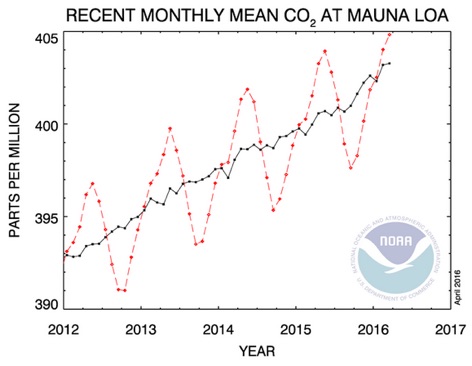
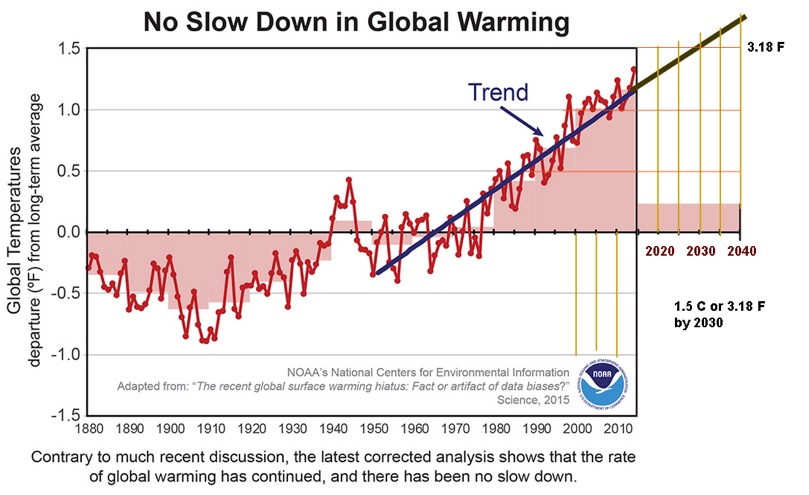
World Bank. 2014. Turn Down the Heat: Confronting the New Climate Normal. Washington, DC: World Bank.
http://www.esrl.noaa.gov/gmd/ccgg/trends/
Robert W Howarth, Methane emissions and climatic warming risk from hydraulic fracturing and shale gas development: implications for policy Department of Ecology and Environmental Biology, Cornell University, Ithaca, NY, USA Energy and Emission Control Technologies 2015:3 45–54
"There is growing evidence that warming close to 1.5°C above pre-industrial levels is locked-in to the Earth’s atmospheric system due to past and predicted emissions of greenhouse gases, and climate change impacts such as extreme heat events may now be unavoidable."
As the planet warms, climatic conditions, heat and other weather extremes which occur once in hundreds of years, if ever, and considered highly unusual or unprecedented today would become the “new climate normal” as we approach 4°C—a frightening world of increased risks and global instability.
The consequences for development would be severe as crop yields decline, water resources change, diseases move into new ranges, and sea levels rise. Ending poverty, increasing global prosperity and reducing global inequality, already difficult, will be much harder with 2°C warming, but at 4°C there is serious doubt whether these goals can be achieved at all."
World Bank. 2014. Turn Down the Heat:
The next 20 years will see increasing conflict between concerned citizens, scientist and academics, and unrestrained fossil fuel extraction/combustion interests and their paid/elected supporters.
To the extent clear headed alternative climate adaptation and mitigation policies are not implemented, opposition to industry policy will include better organized and even violent demonstration and action--there is too much corruption, injustice and insanity in the governments position. Profound social and political transformation is obviously required and will be urged with increasing desperation.
The political gap between climate change deniers and concerned scientists and citizens is dangerously large and growing. The 'fossil regime' economic and political coalition is investing more and more millions into message control and risk avoidance measures. Social scientists are contemplating the need for a frontal assault on the carbon capital media formation:
'Compared to those elites, the voices, say, of consumer and environmental groups are infrequent and weak. . . ‘In the case of the green-energy transition in the twentyfirst century United States, the political contestation by the incumbent industrial regime is so well organized that it should be at the center of the analytical framework’.
Frank W Geels, Regime Resistance against Low-Carbon Transitions: Introducing Politics and Power into the Multi-Level Perspective, Theory, Culture & Society 2014, Vol. 31(5) 21–40
In Louisville, activists are forced to confront local energy and transportation policy in a political system that is very much captured by the organized business community. The state approved transportation plan, shows local Metro Government leadership has abandoned crafting a 21st century policy based in science in favor of serving the priorities of indigenous corporations FORD, UPS, HUMANA, GE and others who deliver employment, quarterly profits, gifts to local charity and ever increasing wage tax revenues. Fischer & Co. unreflectively embrace the dynamic of 'treadmill capitalism' with its relentless expansion of luxury material consumption and business as usual fossil fuel emissions. Climate change is not a big factor in Metro planning even where our heat island and air pollution disease impacts put us high on national lists. CART and other non-profit groups have not been able to deflect this 'well oiled' neoliberal political trajectory. Joining with the multiple Metro funded and inspired erzatz green projects for example the Louisville Sustainability Coalition are not likely to actually reduce carbon emissions. Geels writes”:
I suggest that socio-political struggles with fossil fuel companies and other incumbent firms (e.g. electric utilities, car companies) will be crucial in the case of low-carbon transitions. In fact, politically inspired regime destabilization may be necessary to create opportunities for the wider diffusion of renewables, which now face uphill struggles against resistant regimes, as this paper has shown. So, rather than following the normal ‘David versus Goliath’ storyline, in which heroic green innovations overthrow the giant, this new agenda would shift the analytical agenda to better understand how ‘Goliath’ can be weakened, eroded and destabilized, to enhance the chances of green Davids.
CART's volunteers in the Move Louisville and other Metro planning functions had a difficult time even getting the Metro Goliath to use the term 'climate change' in the transportation policy public consultations. The activists community has not weakened, eroded or destabilized the transportation industrial complex here, nor even effectively challenged its message.
Metro consultant Nelson-Nygaard never bothered to present comparative carbon emission data for various mode alternatives in Move Louisville. Climate change was downplayed as a factor in the January 2016 application by Louisville Forward for federal dollars in Obama's 'Smart City' federal subsidy to introduce automated 'driverless' vehicles. Louisville Metro's 'regime resistance' against scientific data produces an awkward Orwellian public space, in which college educated professionals well versed in the dangers of climate change are muted by their troglodyte industrial masters, leaving them unable to lead or discuss the actual implications of our Metro growth and spending polices.
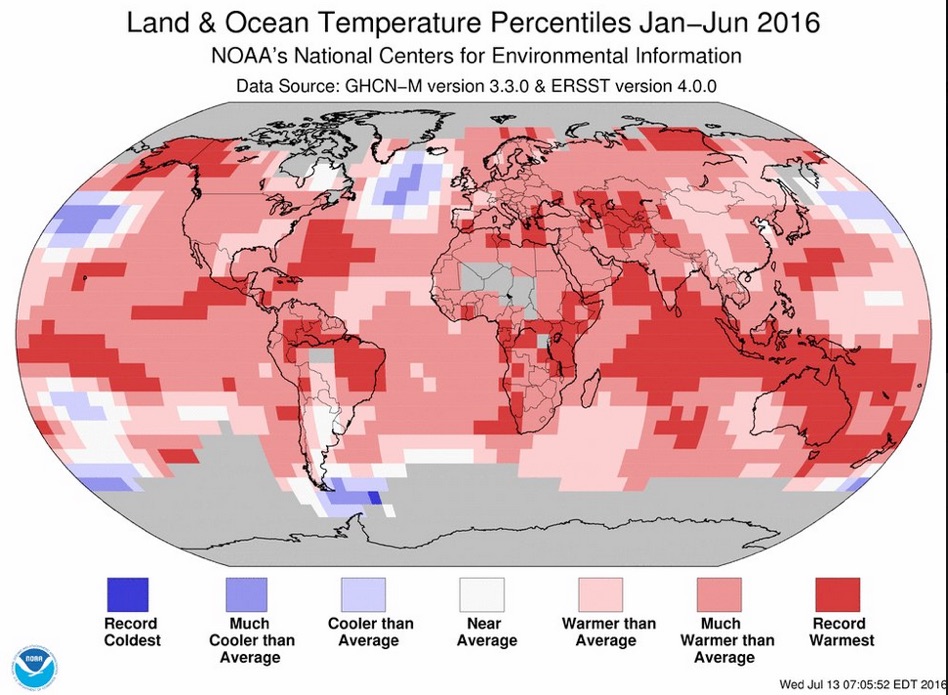
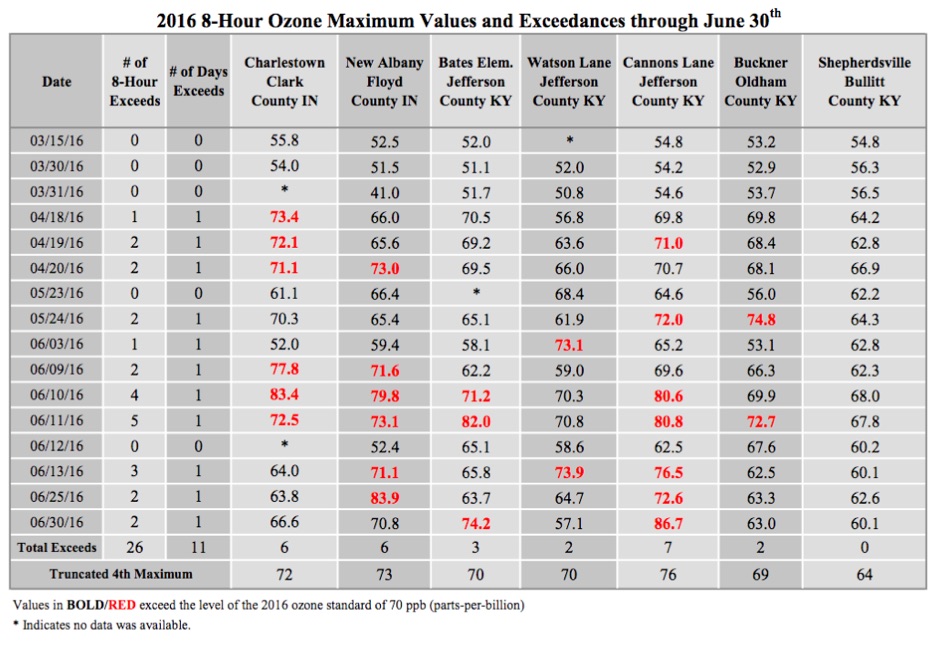
Metro Louisville has no serious planning for reducing carbon emissions from the transportation sector. The Metro Goliath regime's reliance on 'the car' –single operator vehicles– as the main mode for commuter transportation planning out to 2050–abdicates the government's duty to protect the population and the ecosystem. Likewise, in power generation, LG&E's transition to natural gas to replace coal may even have produced a bigger carbon footprint --due to the fugitive methane emissions from natural gas production that Robert Howarth shows to be much higher that EPA estimates.
Robert W Howarth, Methane emissions and climatic warming risk from hydraulic fracturing and shale gas development: implications for policy Department of Ecology and Environmental Biology, Cornell University, Ithaca, NY, USA Energy and Emission Control Technologies 2015:3 45–54
Within the critical time period, of about 15 years, from 2016 to 2030, local gasoline retailers and automotive product producers are not programming a transition in Louisville to 'no-emissions' vehicles.
U.S. gasoline consumption averages 9.23 million barrels per day even as vehicle miles traveled is increasing past 9 billion miles per day. U.S. Energy Information Agency, Shortterm Energy Outlook.
Instead, in 2016 Louisville dealers are looking for record gasoline powered vehicle sales of trucks and SUVs as consumers respond to cheap pump prices. The industry dominated policy machine is programming another 15 years of business as usual before the general public realizes the lethality of their self-serving infrastructure spending and policy.
Metro and regional leadership under Greg Fischer and his predecessor, has failed--and farsighted energy and transportation policy has been buried under a mound of 60s style Mad Men materialist culture. Their greed replicated across the globe by other treadmill capitalists now raises the potential for poisoning the Earth beyond human survival by 2100. Billions of people presently living will be affected much more negatively by our failure to wake up.
Comparisons with the death toll of WWII Nazi regime in terms of victims that will ultimately die as a result of government propaganda and misinformation are not inappropriate. The pro-Aryan anti-Jewish hate campaign that promised Germans Utopia killed over 60 million people, about 3% of the 1940 world population. But, the climate change deniers propaganda risks many more,
"Social disruption and economic consequences of such large sea level rise, and the attendant increases in storms and climate extremes, could be devastating. It is not difficult to imagine that conflicts arising from forced migrations and economic collapse might make the planet ungovernable, threatening the fabric of civilization."
James Hansen, et al, Ice melt, sea level rise and superstorms: evidence from paleoclimate data, climate modeling, and modern observations that 2°C global warming could be dangerous, Atmos. Chem. Phys., 16, 3761–3812, 3799, 2016.
Kentucky's fossil fuel dominated regime is using misinformation and ignoring the emerging science to protect and invest the public wealth in the doomed carbon economy. Other paths in zero emissions energy and transportation are possible in Louisville and Kentucky, will be needed in 15 years, and must be developed today--NOW.
Human vision leaps ahead to the looming consequences of climate denial policy. By 2025, it is likely to be clear to many that the 'business as usual' path of increasing carbon emissions poses an imminent risk of disrupting global political stability and food security.
Billions of poor people will be paying the cost of failed climate adaptation and source reduction, draining governmental health and military resources. Hansen et al:
“Our analysis paints a very different picture than IPCC (2013) for continuation of this Hyper-Anthropocene phase, if GHG emissions continue to grow. In that case, we conclude that multi-meter sea level rise would become practically unavoidable, probably within 50–150 years. Full shutdown of the North Atlantic Overturning Circulation would be likely within the next several decades in such a climate forcing scenario. Social disruption and economic consequences of such large sea level rise, and the attendant increases in storms and climate extremes, could be devastating. It is not difficult to imagine that conflicts arising from forced migrations and economic collapse might make the planet ungovernable, threatening the fabric of civilization.”
Television, the internet and social media connections will inform the poor climate refugees and marginal wage slaves that just 10% of the upper income populations of northern European nations emits 50% of the total carbon emissions to continue enjoying a materially wasteful lifestyle. By 2030, it will be clear that there will be no 'catching up,' and as the World Bank has warned, in a 4°C world "there is serious doubt whether these [social justice] goals can be achieved at all." When the carrot of upward mobility disappears for the average worker, one of the honey traps of capitalist addiction is gone. The American Way will have shot its bolt and the government will have to rule by brutal force.
The aspirations of the Black Lives Matter movement for historic equity is exposed to a grave threat by the fossil fuel regime. Acidification of the ocean, super-storms, sea level rise and heat waves will deplete charitable and social safety net resources and cost the U.S. billions of dollars per year. The poor will feel the collapse the most.
The fossil fuel regime has lost the claim that it is designing and building a sustainable social future, has lost the argument that it is going to provide safe and prosperous future with equal opportunity for its citizens, and now has to lie, misinform, ignore, obscure or disguise the fact that it is leading the world over a cliff to catastrophic ruin.
The social contract relying on the consent of the governed is broken just as it was when Nazis claimed racial purity was a social goal that justified genocide. Americans asked themselves, "how could the German population remain silent" and fail to resist the slide into fascism to mass murder. We have to ask ourselves the same question as we stand silently complicit as obsolete materialism squanders the last chance to save the planetary ecosystem we depend on. We have to design our way back to sustainability or blind ourselves to the coming apocalypse.
The next 10 years in the U.S. will 'cast the die' and leave us in a position to either avoid exceeding a 2°C temperature anomaly or lead us to a collapsing ecosystem and catastrophic impacts. We are facing a 'planetary crisis' that cannot be ignored and won't go away. This is the moment to seize the possibility of human survival– or to watch it slip away.
http://www.atmos-chem-phys.net/16/3761/2016/acp-16-3761-2016.pdf
Ice melt, sea level rise and superstorms:
evidence from paleoclimate data, climate modeling, and modern observations that 2 C global warming could be dangerous
James Hansen1, Makiko Sato1, Paul Hearty2, Reto Ruedy3,4, Maxwell Kelley3,4, Valerie Masson-Delmotte5, Gary Russell4, George Tselioudis4, Junji Cao6, Eric Rignot7,8, Isabella Velicogna7,8, Blair Tormey9, Bailey Donovan10, Evgeniya Kandiano11, Karina von Schuckmann12, Pushker Kharecha1,4, Allegra N. Legrande4, Michael Bauer4,13,
and Kwok-Wai Lo3,4
"Humanity is rapidly extracting and burning fossil fuels without full understanding of the consequences. Current assessments place emphasis on practical effects such as increasing extremes of heat waves, droughts, heavy rainfall, floods, and encroaching seas (IPCC, 2014; USNCA, 2014).
These assessments and our recent study (Hansen et al., 2013a) conclude that there is an urgency to slow carbon dioxide (CO2/ emissions, because the longevity of the carbon in the climate system (Archer, 2005) and persistence of the induced warming (Solomon et al., 2010) may lock in unavoidable, highly undesirable consequences.
Despite these warnings, fossil fuels remain the world’s primary energy source and global CO2 emissions continue at a high level, perhaps with an expectation that humanity can adapt to climate change and find ways to minimize effects via advanced technologies.
We suggest that this viewpoint fails to appreciate the nature of the threat posed by ice sheet instability and sea level rise. If the ocean continues to accumulate heat and increase melting of marine-terminating ice shelves
of Antarctica and Greenland, a point will be reached at which it is impossible to avoid large-scale ice sheet disintegration with sea level rise of at least several meters. The economic and social cost of losing functionality of all coastal cities is practically incalculable.
not only do we see evidence of changes beginning
to happen in the climate system, as discussed above, but we have also associated these changes with amplifying feedback processes.We understand that in a system that is out of equilibrium, a system in which the equilibrium is difficult to restore rapidly, a system in which major components such as the ocean and ice sheets have great inertia but are beginning to change, the existence of such amplifying feedbacks presents a situation of great concern.
There is a possibility, a real danger,
that we will hand young people
and future generations
a climate system
that is practically out of their control.
We conclude that the message our
climate science delivers
to society, policymakers,
and the public alike is this:
we have a global emergency.
Fossil fuel CO2 emissions should
be reduced as rapidly as practical."

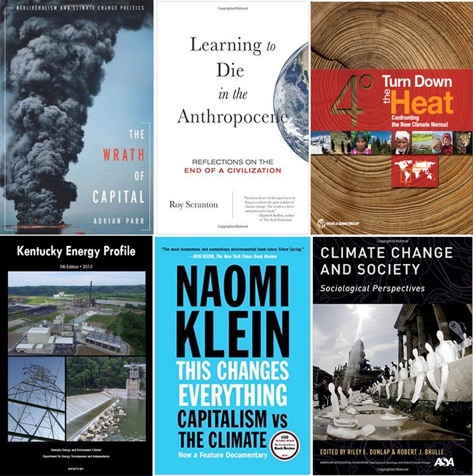
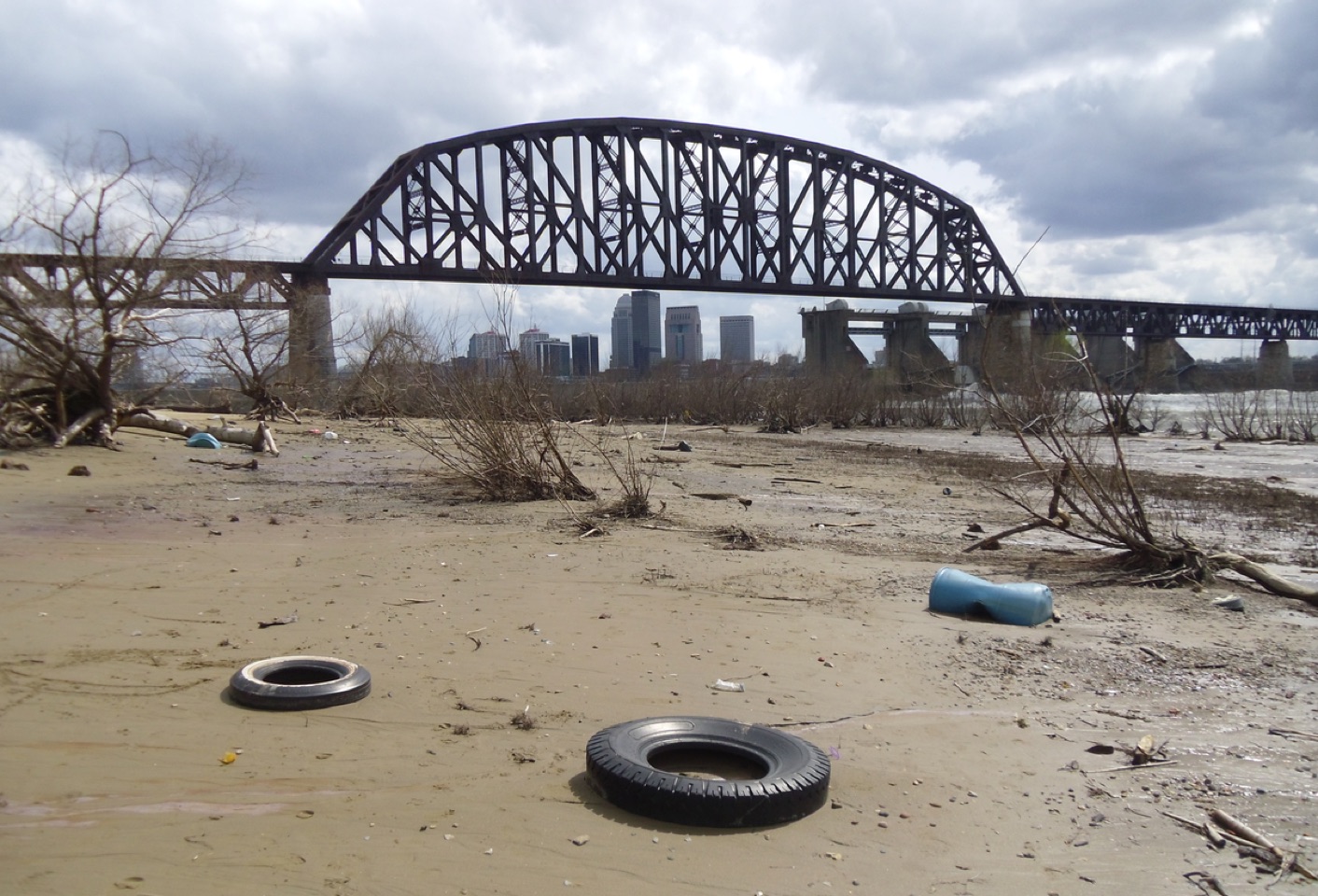

Monthly values of Arctic-wide 2-m air temperature anomalies through May 2016 based on NCEP–NCAR reanalysis.
JAMES E. OVERLAND, NOAA/Pacific Marine Environmental Laboratory, Seattle, Washington, MUYIN WANG, Joint Institute for the Study of the Atmosphere and Ocean, University of Washington, Seattle, Washington
A.J Turner, et al,
A large increase in U.S. methane emissions over the past
decade inferred from satellite data and surface observations
Geophysical Research Letters
10.1002/2016GL067987
Recent Extreme Arctic Temperatures are due to a Split Polar Vortex
“There were extensive regions of Arctic temperature extremes in January and February 2016 that continued into April. For January, the Arctic-wide averaged temperature anomaly was 2.08°C above the previous record
of 3.08°C based on four reanalysis products.”
http://journals.ametsoc.org/doi/pdf/10.1175/JCLI-D-16-0320.1
Abstract The global burden of atmospheric methane has been increasing over the past decade, but the causes are not well understood. National inventory estimates from the U.S. Environmental Protection Agency indicate no significant trend in U.S. anthropogenic methane emissions from 2002 to present. Here we use satellite retrievals and surface observations of atmospheric methane to suggest that U.S. methane
emissions have increased by more than 30% over the 2002–2014 period. The trend is largest in the central part of the country, but we cannot readily attribute it to any specific source type. This large increase in U.S.
methane emissions could account for 30–60% of the global growth of atmospheric methane seen in the past decade.
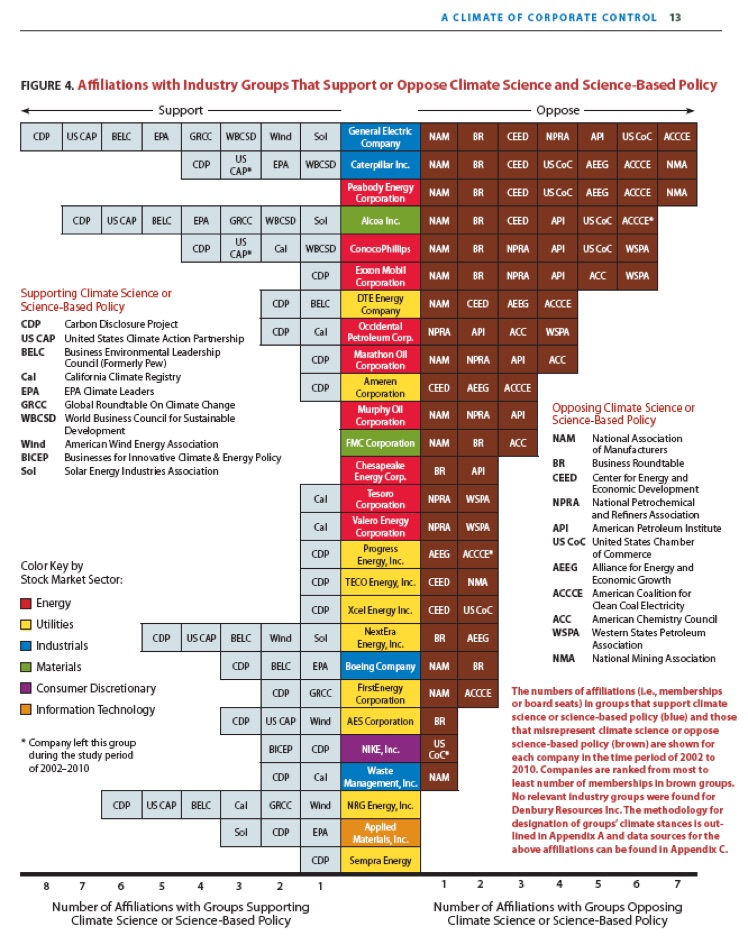
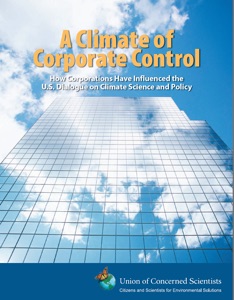
UNION OF CONCERNED SCIENTISTS
http://www.ucsusa.org
Available online
Our analysis reveals that while some American companies have taken consistent and laudable actions in support of climate science—and of
consequent policy—others have worked aggressively to undermine the science and block science based policy proposals. Still other companies have taken contradictory actions in different venues. Such inconsistent corporations create confusion by representing the scientific consensus accurately in some venues but not in others, and by supporting politicians, trade groups, and think tanks whose positions are in direct conflict
with one another. The resulting defeat or delay of policy efforts to address climate change has huge implications for government, the economy, public well-being, and the planet.
